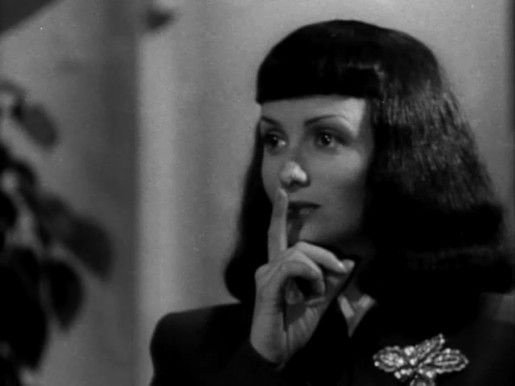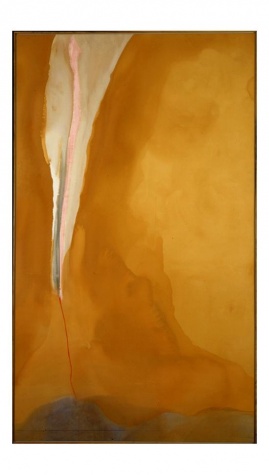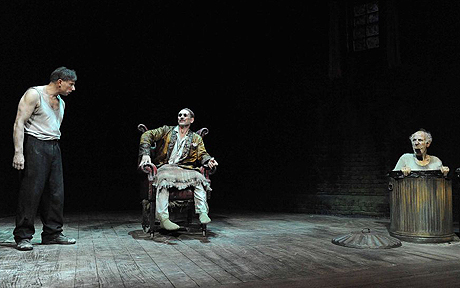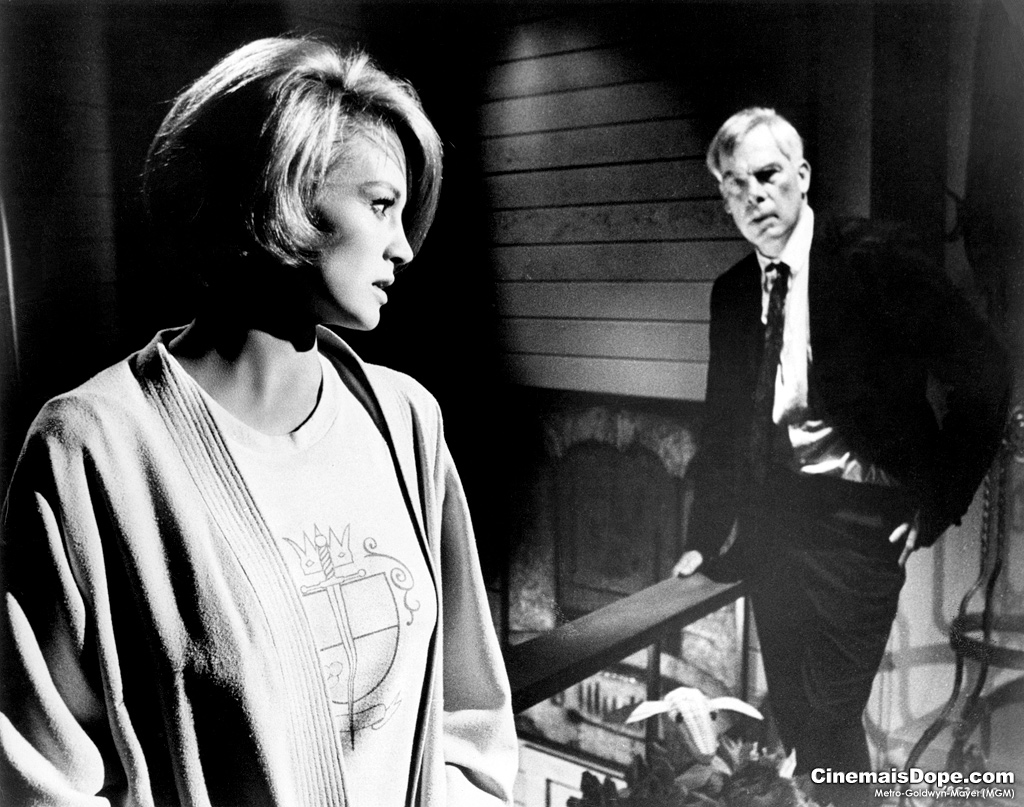John, I happened to take a look at Friedkin's film Sorcerer from 1977 and was struck again by what a fine piece of work it is. Cluzot's original (Wages of Fear) is strong also, but Friedkin's version is, remarkably, not secondary to the original. There's a transition near the close of the film that struck me as among the most beautiful transitions in the history of cinema. Roy Scheider's character (Scanlon) is driving the final nighttime leg of his journey with the dead body of his partner - the assassin played by Francisco Rabal (Nilo). This dead man is taunting Scanlon, laughing as the truck finally breaks down in a ghostly terrain full of conic sand formations that look particularly eerie … [Read more...]
Interview on Theatre/ with Molly Klein, Part 2: Space and Spectacle
Molly: Phantom Luck might be a better illustration of a defence of the ritual theatrical space, but I want to ask this with reference to Parking Lot because it seems to open with this very stark proposal of the question of the spectacle: a scene that reminds us of Barthes and other famous remarks on photography, and the Flusser you were discussing on the blog but which enacts those remarks as a dramatic moment through which melodrama and modernism and realism all intersect. A man is confronted by his photographic image. And he flatly rejects it. And we're not sure whether this rejection is legitimate or what it means. But we know this is something we're going to find out: MAN holds it … [Read more...]
Interview , Molly Klein talks to John Steppling/ Theatre, part 1
Molly: You’re going to consider this a little hostile, and I mean it as a provocation yet sincerely: I would consider you a postmodern playwright, the reverence for the canon of modernism and its aesthetic that you voice in your criticism, and which does imbue your plays I think too, notwithstanding. But postmodernism is often now tarred as frivolous or, following Jameson, vacuous, ludic illusions of content. Obviously I think that’s wrong and a gimmicky theory gambit: wrong and in a way racist – because the great postmodern work that needs to be sidelined to make this judgement is largely work informed by the militant culture wars (magic realism in novels, for example, or what … [Read more...]
Dialogue #5/ with Molly Klein: Weeds, or Who Gets to Fuck Nancy
Who Gets to Fuck Nancy? I think this scene captures the appeal of Weeds and its place nestled in a little cluster of genres. We have a joyous vision of the California utopia with no excessive aspirations – just a day at the shopping centre with everyone happy and prosperous and friendly. Then a reminder of the dangers and costs; Mexico/Crime appears - out of another genre, a broader comedy. That killer will have charming but cliché lines rehashing the popular “Sopranos” effect – the thug voicing the ordinary sitcom and talkshow family discourse. His wife will call his mobile and say hurry up and kill Nancy because she has made a dinner that will spoil. He will divulge the secret of … [Read more...]
Dialogue #4 / with Guy Zimmerman, Praise
Praise John, there’s a certain kind of art work I’ve been wanting to give public thanks for, and it’s a kind of work I associate with your plays generally – a work that’s defined by a fragmentary, elliptical quality that often gives it the sense of having happened by a kind of natural process rather than by an effort of will. In literature Jesus’ Son by Denis Johnson is a great example, and so is Ondaatje’s The Collected Work of Billy the Kid. Juan Rulfo’s Pedro Paramo is another example of this kind of wayward perfection – the lighting of a candle in a world that’s like a vast cathedral and somehow that candle is just enough to illuminate it perfectly. These works are so enjoyable … [Read more...]
Dialogue 3 / with Guy Zimmerman, Theatre
John, one of the things I’ve been thinking about is the temporal inversion that happens in theater -- how plays seem to make their way forward, paradoxically, to the past. This uncanny retrograde temporality is clearest in post-war modernist tragedies like Endgame or Pinter’s The Homecoming, (or Albee’s Three Tall Women, or Churchill’s Far Away etc) which I think were really about that odd feature of our situatedness in time, but I think it’s interesting also to look back at the history of tragic drama through that lens. In Strindberg, Ibsen and Chekhov this temporal inversion seems very strong – whatever is happening via the forward motion of the plot, the affective structures of the play … [Read more...]
Dialogue #2
DIALOGUE #2 A dialogue with playwright, director, and teacher Guy Zimmerman. Drive GZ John, looking back at the last year in popular culture Refn's film Drive with Ryan Gosling stands out as having a bit of a pulse - some of it is quite good, in fact - and I thought it might provide an okay jumping off point for a broader look at where we are at currently. Curious what you made of the film generally. ----- JS: Its interesting, if we’re sort of just talking film as an entryway to broader issues, that you mention Drive. I was running a Cinematheque out in Palm Springs at the Ace Hotel, and then later Palm Desert, and it was mostly quite young film enthusiasts (sic). … [Read more...]
Dialogue #1: Death of a Salesman
Various discussions with other writers and artists, as well as critics and academics on various topics relating to culture. Some were my idea, some not. JS Namna Norway June 2012 A conversation between a theatre professor at a California community college in the Bay Area and and playwright John Steppling regarding Death of a Salesman by Arthur Miller. John Steppling: Well, first off, lets focus on the Miller play. I don’t think it’s an accident that this play has retained an extraordinary popularity. I can think of no American play more performed at a collegiate and even high school level. Something in that fact suggests there is nothing that really disrupts the general public’s … [Read more...]







